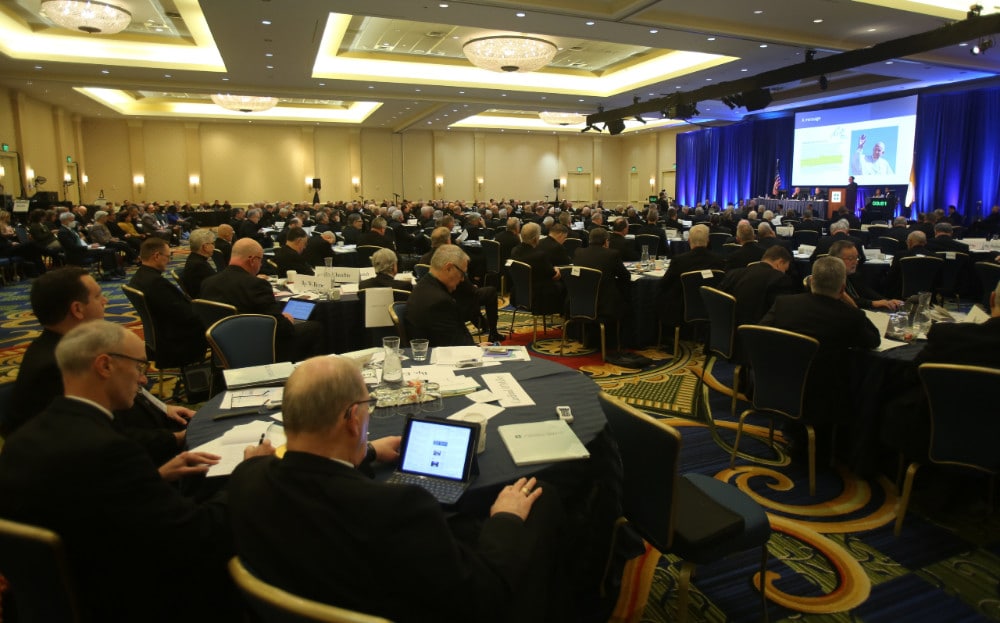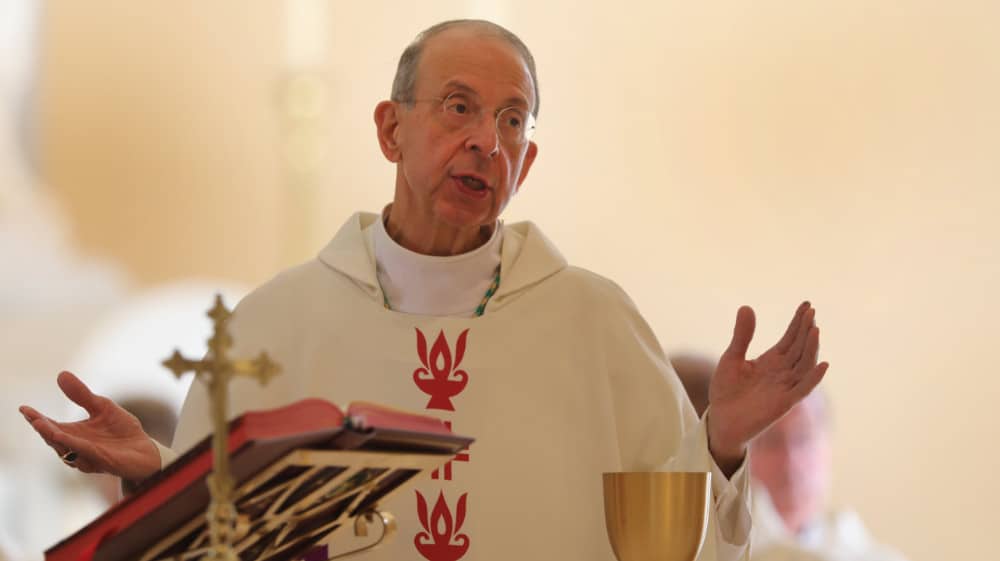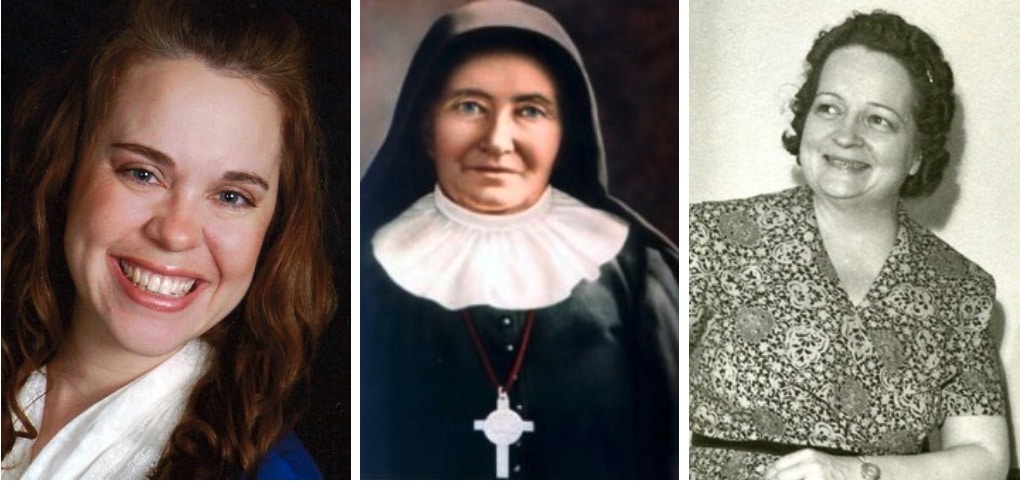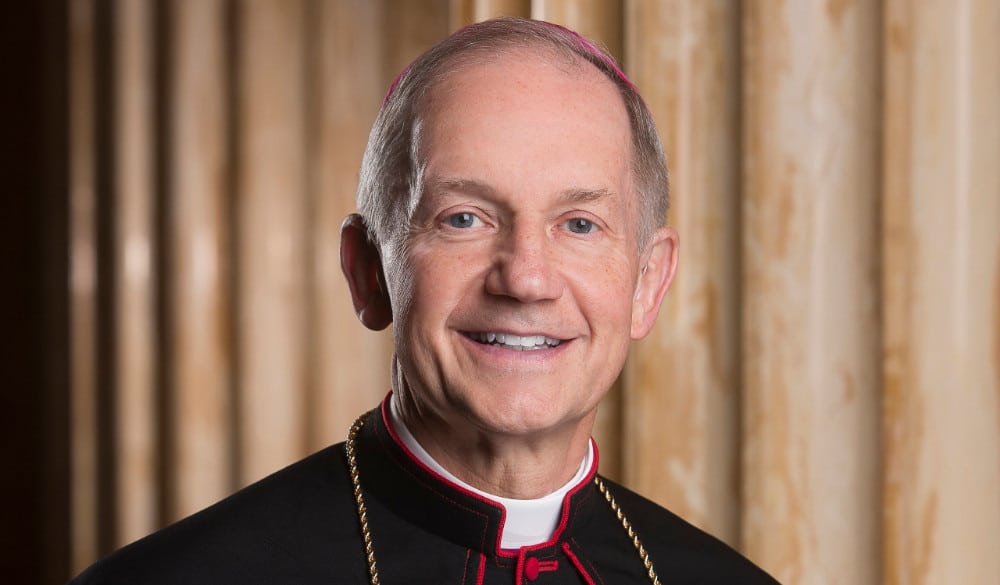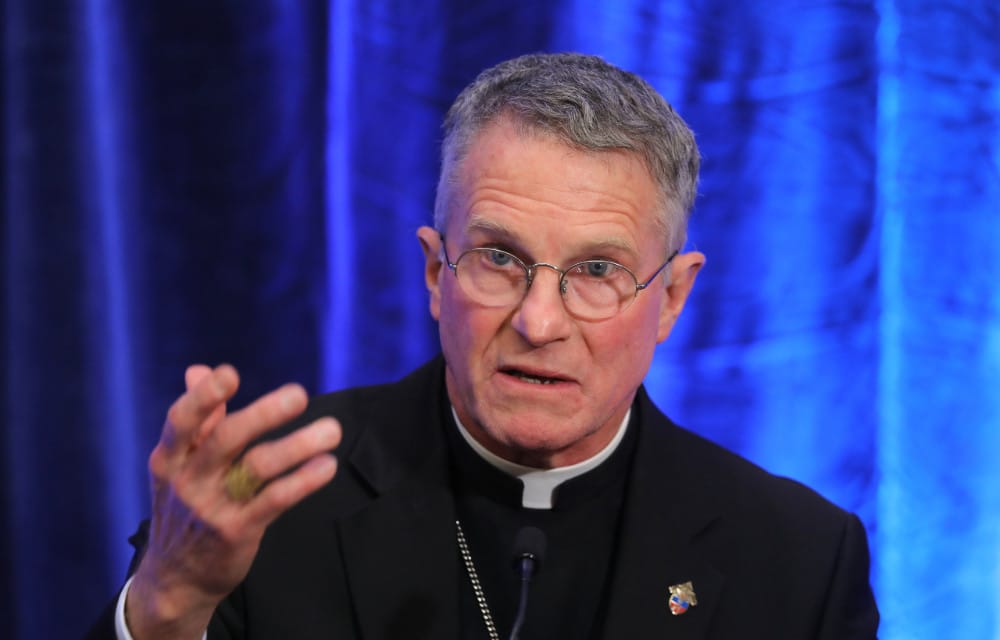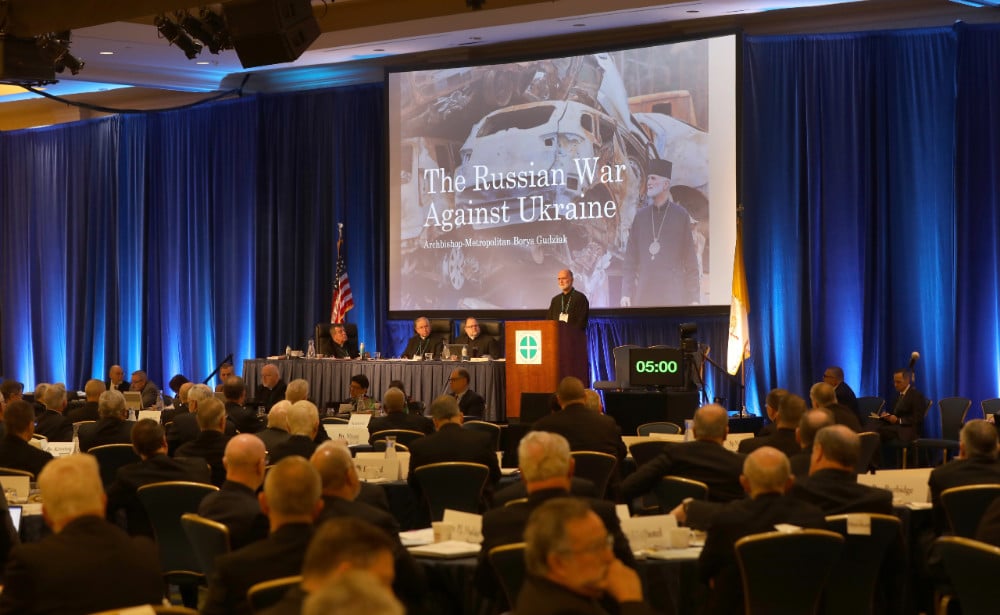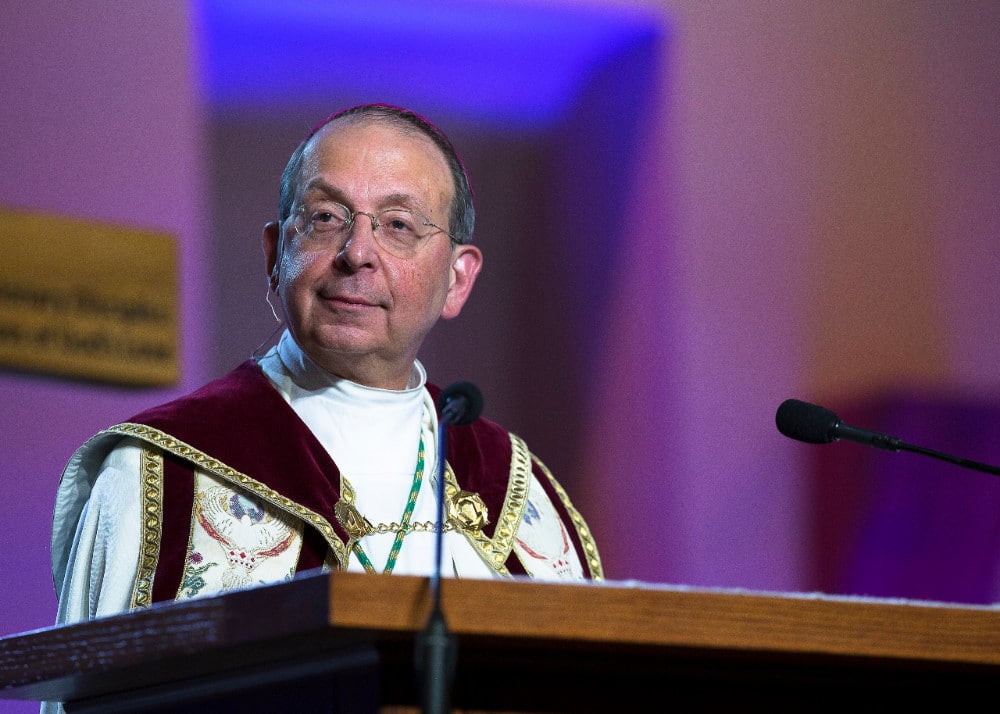The bishops of the United States have gathered for their annual fall assembly in Baltimore this week. While much of the assembly concerns administrative processes necessary for Church governance, such as the election of Archbishop Timothy Broglio of the Archdiocese for the Military Services as president and Archbishop William Lori of Baltimore as vice president, other matters discussed raise unresolved questions for the Church in the U.S.
Among the issues that will demand further consideration are the appeal of Archbishop Christophe Pierre, apostolic nuncio to the United States, to revitalize the Church’s missionary impulse, questions posed to Bishop Daniel Flores of Brownsville, Texas, about the continental phase of the synod, and the state of Catholic pro-life efforts after Dobbs v. Jackson.
1. The message of the apostolic nuncio
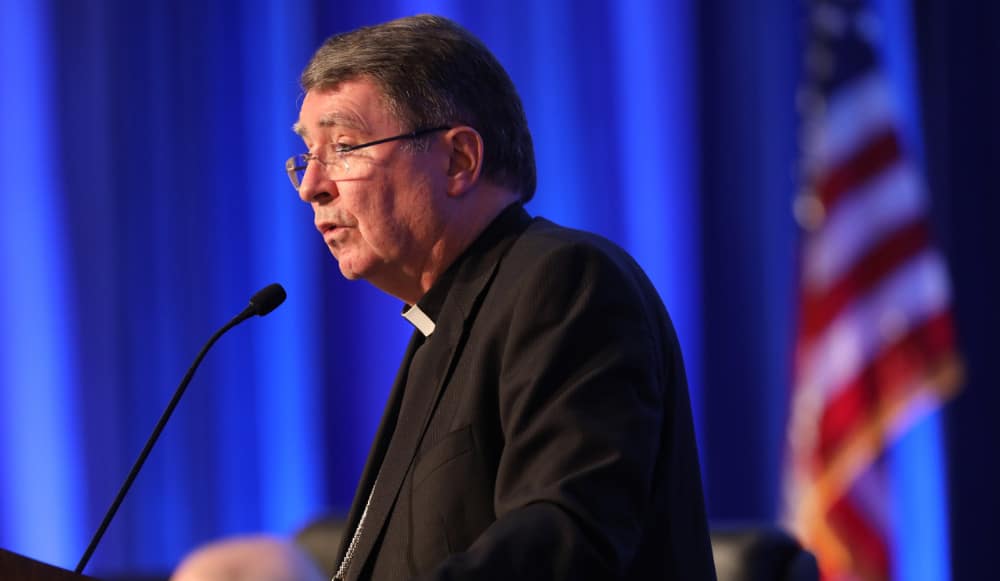
Archbishop Pierre, the papal nuncio, called his brother bishops to walk “Cum Petro et sub Petro,” that is, “with Peter and under Peter.” With the 10th anniversary of Pope Francis’ election on the horizon (March 13, 2023), Archbishop Pierre took the opportunity to draw the attention of the bishops of the United States to several prominent themes of Pope Francis’ pontificate, most notably the call to be a missionary Church.
“Pope Francis proposes the image of a ‘poor Church for the poor,’ a Church close to the abandoned and forgotten, a Church which conveys the tenderness of God,” said Archbishop Pierre. A missionary Church “goes forth to announce the joyful message” of the Gospel, as well as accompanies the faithful on their journey. Encouraging the bishops to “go forth,” Archbishop Pierre expressed hope that the Eucharist Revival would be lived as an “evangelizing moment.”
2. Questions raised about the synod
In the questions following his presentation introducing the continental stage of the synod on synodality, Bishop Flores, chairman of the Committee on Doctrine, addressed concerns about process and manipulation presented from bishops attending the session.
Bishop Thomas Paprocki of Springfield, Illinois, asked about the process of they synthesis. “Who is going to collate this?” he asked Bishop Flores, who clarified that the committee of bishops and lay staff who collated the national synthesis would contribute at the continental phase. These contributions would be added to those compiled by the Canadian bishops to form the summary from the U.S. and Canada for the continental phase.
For his part, Archbishop Joseph Naumann of the Archdiocese of Kansas City, Kansas, gently expressed unease. While he insisted he had seen, “A lot of graces from [the synod] in the Archdiocese of Kansas City” and that “this whole approach to be a more listening Church is good, it’s fruitful,” he proceeded to voice apprehension. “I hesitate to bring this, but I think it’s the elephant in the room,” he said. The archbishop asserted, “I think there’s a lot of concern among Catholics that this process can be manipulated.” He attributed that concern to what American Catholics have seen coming out of other European countries connected to the synod. And, continued the archbishop, “what we’ve heard even from the leadership of those that are leading the synodal process.”
Bishop Flores responded saying, “I view this in terms of our responsibility, first of all to make a distinction amongst ourselves and amongst our people that part of the effort of the synod is to inculcate a synodal style, which is more about how we relate pastorally with our people.” He further clarified, “Walking with them is a style that overcomes polarization that is often expressed in the synodal documents themselves.” Second, Bishop Flores explained the need “to discern the role specifically of the bishops in this synodal reality.” Referring to “the paradigm of the Acts of the Apostles” he suggested that “at a certain point the discernment is in communion with the bishops.”
3. Seeking a united approach to pro-life issues
“We cannot credibly speak in a polarized society as long as our own house is divided,” said newly elected vice president of the U.S. Conference of Catholic Bishops, Archbishop William E. Lori of Baltimore. “At the same time, we cannot wait until perfect unanimity has been attained before we bear witness to the ambient culture about human life and dignity,” the archbishop asserted.
Addressing frequently voiced criticisms about pro-life advocacy work, Archbishop Lori said, “Ministries that support marriage and family do not detract from the works of justice, but contribute to the common good and to human flourishing.” Encouraging initiatives like Walking with Moms in Need, Archbishop Lori stressed the value of the witness that care of mother and child can bring to the wider culture. “Our commitment to help mothers bring their babies to term is wholly compatible with our commitment to work for a society in which both mother and child can flourish,” he said. For Archbishop Lori, this is a work of evangelization.
“In a fragmented world of angry partisanship, our message and our witness to the culture must be that we are making the good of others our own,” said Archbishop Lori. While the overturning of Roe v. Wade was a significant victory for the pro-life cause, the failure of five ballot measures in the midterm election has led archbishop Lori to to emphasize the power of witness, encouraging Catholics to surround women in crisis pregnancies with love.
Father Patrick Briscoe, OP, is editor of Our Sunday Visitor. Follow him on Twitter @PatrickMaryOP.

